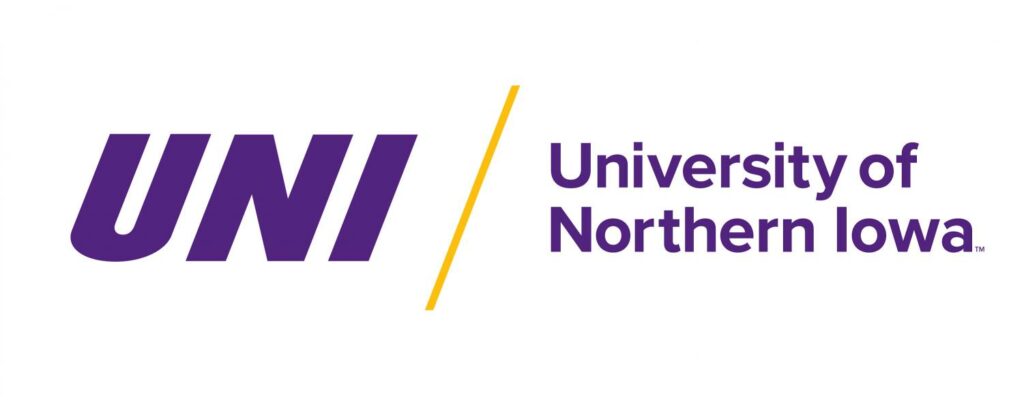Officials: Aluminum tariffs, Canadian countermeasures will hurt Iowa manufacturers

JOE GARDYASZ Sep 14, 2020 | 7:28 pm
6 min read time
1,388 wordsAll Latest News, Economic Development, Government Policy and LawLess than three months after the new U.S.-Mexico-Canada Agreement was enacted on July 1, the United States and Canada are squaring off in a renewed tariff war over aluminum exports that Iowa’s export council chairman calls a “lose-lose scenario.”
On Wednesday the Canadian government is expected to announce and enact dollar-for-dollar countermeasures in response to President Donald Trump’s Aug. 6 reinstatement of tariffs on Canadian imports of aluminum. Canadian officials estimate the countermeasures will affect about $88 million in exports of finished products to Canada by Iowa manufacturers.
Daryl Bouwkamp, a manufacturing executive with Vermeer Corp. and president of the Iowa District Export Council, called the new tariffs and the pending countermeasures “a lose-lose situation.” Bouwkamp is senior director of international development and government affairs for Vermeer in Pella.
“As a manufacturer and chair of the Iowa District Export Council, it’s certainly not what we wanted to see a month after the USMCA was enacted,” he said. “It’s kind of a blow to the relationship. You work so hard together as industry and government to pass something which is good for all of North America, and then to reenter into something like this on the coattails of this landmark agreement, it kind of sours the relationship.”
Canada is Iowa’s largest export market. Iowa exported $4.3 billion in goods to Canada in 2018, representing 30% of the state’s total goods exported, according to data from the Office of the U.S. Trade Representative.
The “lose-lose” proposition flows from both sides of the border, in a combination of increased costs for Iowa importers and consumers on finished goods, which Bouwkamp estimates “in the neighborhood of $500 million-plus.” Additionally, “they will also hurt from the countermeasures. So I see it as a lose-lose scenario.”
Part of the National Association of District Export Councils, district export councils are organizations of business leaders from local communities, appointed by various U.S. secretaries of commerce to serve as a source of professional advice for their region’s local firms. The Iowa DEC is one of more than 60 DECs operating throughout the country to support export promotion efforts.
The Trump administration had imposed a 10% tariff on steel and aluminum being exported from Canada into the United States in June 2018. Those tariffs were lifted in May 2019, but the administration reserved the right to reinstate the tariffs if it believed Canadian exports were surging.
According to a New York Times report in February, the U.S. Commerce Department said that imports of steel and aluminum into the United States have declined since the tariffs went into place, but imports of products made with those metals had “significantly increased.”
Consequently, the administration on Feb. 8 imposed tariffs on certain categories of finished aluminum goods, such as wire and nails, from all foreign sources. Economists said the countries’ actions were the “expected blowback” from tariffs.
Canadian officials are still hoping the U.S. will reverse course. Reinstating the tariff on aluminum is “completely inappropriate and unwarranted,” a Canadian consul told the Business Record.
“We don’t believe that Canada and its aluminum are a threat to national security,” said Robert Pengelly, consul and program manager for political/economic relations at the Consulate General of Canada in Minneapolis. “In fact, we believe that [Canadian aluminum] strengthens U.S. national security.”
The Canadians say the tariff reinstatement is also inappropriate because it will hit U.S. manufacturers and consumers first, given that U.S. aluminum suppliers can only fill about 20% of domestic demand. “So the tariffs will only benefit third-party producers like Russia,” Pengelly said.
Most of the North American aluminum industry is not in favor of these tariffs, Pengelly said, as some 160,000 jobs on both sides of the border are linked to aluminum production.
A similar sentiment was stated a month earlier by Tom Dobbins, president and CEO of the Aluminum Association. The Arlington, Va.-based trade association represents companies that make 70% of the aluminum and aluminum products shipped in North America, according to its website.
“We’re incredibly disappointed that the administration failed to listen to the vast majority of domestic aluminum companies and users by reinstating Section 232 tariffs on Canadian aluminum,” Dobbins said in a press release on Aug. 6.
“After years of complex negotiations and hard work by government, industry and other leaders across North America to make the U.S.-Mexico-Canada Agreement a reality, this ill-advised action on a key trading partner undermines the deal’s benefits at a time when U.S. businesses and consumers can least afford it,” he stated.
The Business Record reached out to several Iowa manufacturing companies that produce finished goods made with aluminum, but did not receive any responses.
Vermeer’s Bouwkamp said his company “won’t see anything imminent” due to the aluminum tariff, in part because it’s not as large a consumer of aluminum as it is of steel. Additionally, “any sizable manufacturer always has supply leveled out over time to even out impacts like this,” he said.
Although Vermeer procures 95% of its steel from U.S. mills, lifting tariffs on steel would tend to benefit manufacturers because it would reduce prices globally, he said.
Bouwkamp said the proper move by the United States over complaints about fairness of aluminum trade would be to take the matter to the World Trade Organization for a ruling. While tariffs can be used as a tool to draw parties to the table when they feel there is something out of balance, “I doubt that this can be seen as a national security issue,” he said.
Asked if the Iowa council registered any opposition to the move, Bouwkamp said he felt it was more appropriate for a “manufacturing-heavy” organization like the Iowa Association of Business and Industry to speak for manufacturers.
Nicole Crain, executive vice president of the Iowa Association of Business and Industry, said that ABI does not have a position on this issue and has not reached out to Iowa’s congressional delegation about it. Its parent organization, the National Association of Manufacturers, has expressed opposition to the reinstated tariffs.
The Business Record also reached out to the office of Sen. Chuck Grassley, who had voiced his opposition to the earlier tariffs as a hurdle that threatened to kill the USMCA. No response has been received.
Grassley, together with Sen. Joni Ernst, on Sept. 10 sent a letter to U.S. Commerce Secretary Wilbur Ross, calling for the administration to lift the 25% tariff on imported steel because Iowa farmers have told them that high steel prices will make it much costlier to rebuild steel bins and other structures destroyed by the widespread derecho natural disaster on Aug. 10. No similar request was made regarding aluminum.
So who is in favor of the aluminum tariffs?
As reported by the Toronto-based Financial Post in July, the organization that successfully lobbied the Trump administration to reimpose the aluminum tariffs, as well as calling for the original tariffs, is the American Primary Aluminum Association.
The organization was formed two years ago by two U.S. aluminum companies, Century Aluminum Co., which is based in Chicago, and Magnitude 7 Metals LLC, which in 2018 took over operations of a large aluminum smelting plant in Missouri that had shut down in 2016 due to its inability to compete with foreign suppliers.
The tariffs imposed in 2018 enabled the plant to bring back about 400 jobs to the southeastern Missouri plant, according to a Reuters report in late February. However, a top executive of Magnitude 7 Metals said the Missouri plant “is losing money at such a rapid clip that it could close within 60 days.”
The original business plan when the plant was bought out of bankruptcy factored in a price of $2,300 to $2,400 per ton of aluminum produced, but the plant is only getting about $1,680 per ton in the metals market, down from about $2,100 a year ago.
Pengelly of the Canadian consulate said: “Reimposing the tariff is also putting certain Russian producers on the same level as Canada producers, and we don’t believe there’s any advantage to that situation.”
The largest investor of Chicago-based Century, which also backs the tariff, is Glencore PLC, a British multinational global metals trader based in Switzerland. As the Financial Post reported in July, Glencore “earlier this year struck a multi-billion dollar deal to buy from a Russian producer, one of the world’s largest, over the next few years.”










